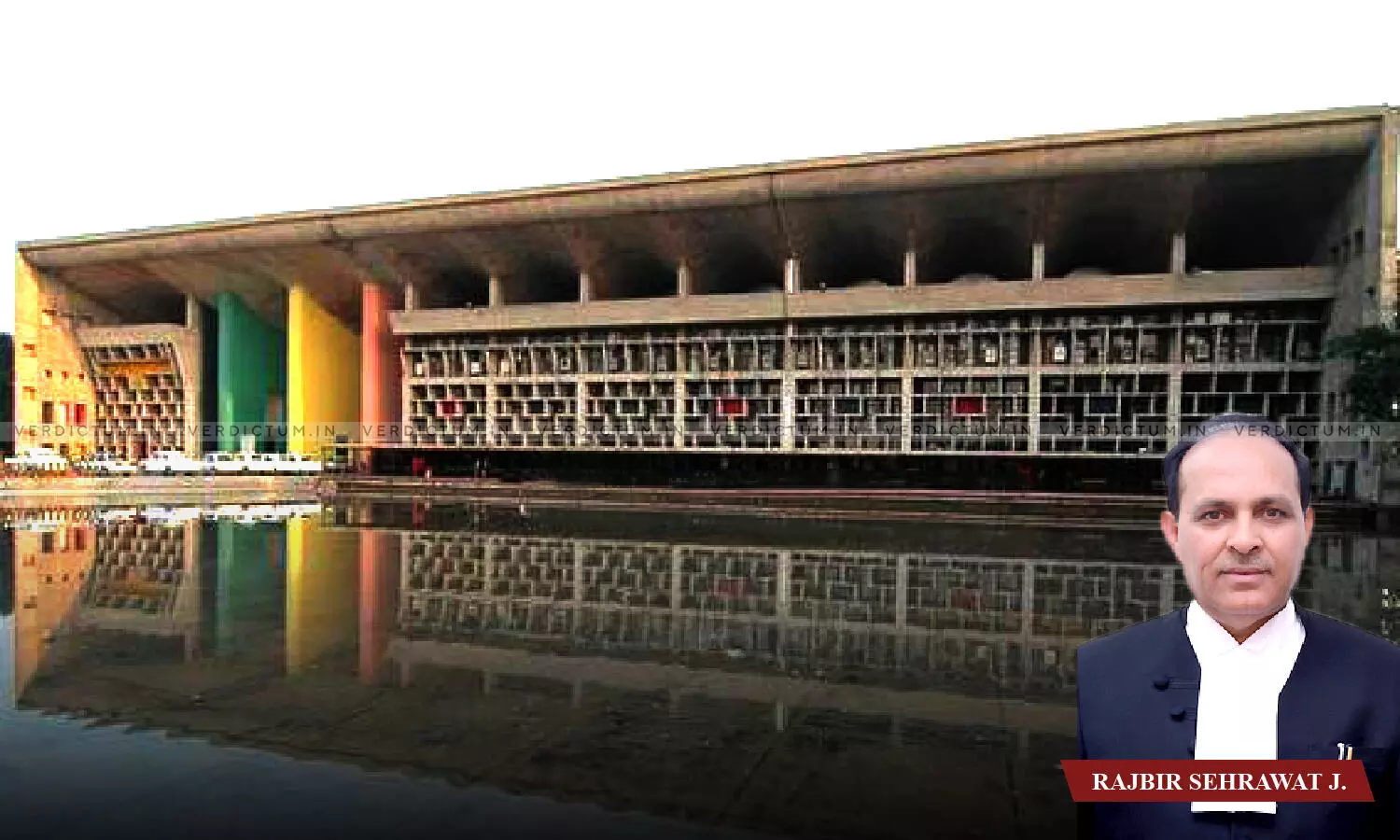
It Is ‘Use Of Vehicle’ On Road Which Invites Liability For Owner Of Vehicle & Insurer To Pay Compensation In Case Of Accident: P&H HC
 |
|While stating that under the Motor Vehicles Act, the liability has increasingly metamorphosed from a tortuous liability to a statutory liability and from being a negligence-based liability to a vehicle default-based strict liability, the Punjab and Haryana High Court recently held that in case the claimant opts for such ‘no fault’ liability for their claims, the claimants need not proof factors related to ‘negligence’.
“Therefore, it is the ‘use of vehicle’ on the road, which per se, invites liability for the owner of the vehicle; and thus, for the insurer; to pay compensation; in case the vehicle is involved in accident. Negligence of the driver is not, per se, the reason for inviting liability by such a vehicle. Hence it is strict liability attached to the vehicle as such”, added the Court.
A Single Judge Bench of Justice Rajbir Sehrawat observed that “the claimants, who are otherwise the legal representatives of the deceased driver, cannot be denied the benefit of compensation only because he himself was driving the vehicle at the time of the accident. Negligence of any person in some of such cases could be relevant only for determination of inter se contractual liability between the owner and the insurer or for determining the inter-se composit liabilities of two or more insurers of more than one vehicle”.
Senior Advocate Rakesh Nehra appeared for the Appellants, whereas Advocate K.S. Dhanora appeared for the Claimants.
Facts in brief are that, an accident occurred between an Innova car and a truck. The occupants of the car suffered deadly injuries leaving only one of them alive. Legal heirs of the deceased and the living occupant filed claim petitions before the Tribunal, which awarded compensation against the insurers of the respondent truck. The Respondent Insurance Company filed an appeal against the Insurers of the car, that they are responsible for compensation as it was the negligence in the part of the driver of the Innova car as he defaulted in maintaining a safe distance from the truck. The Tribunal allowed the appeal.
After perusing the facts and examining relevant sections of the Motor Vehicles Act, the High Court observed that it is a case of a ‘no fault’ liability.
“A perusal of the language of the sections mentioned above shows that liability to pay compensation has been tagged to the ‘use of vehicle’ in public place if the said vehicle causes accident. This itself shows that the liability to pay compensation is more attached to the vehicle than anything else”, added the Court.
The Bench then compared the British ‘Road Traffic Act 1988’ and the Indian ‘Motor Vehicle Act 1988’ as amended up-to 2019, and stated that, “While the Road Traffic Act of Britain does not provide any further criteria for determining the rule of liability; so there the adjudication proceeds on the ‘negligence’ as the rules of tortuous liability, the Motor Vehicle Act in India provides for a positive ‘Fault Neutral’ liability and prescribes that while claiming compensation under no fault liability provisions; the claimant shall not be required to plead or prove certain factors mentioned in these provisions”.
Hence, the Bench highlighted that if a claimant opt to claim compensation under the rule other than ‘no fault’ liability rule, then he shall not be exempted from pleading and proving the factors which were exempted from pleading and proof under the rule of ‘No Fault’ liability.
While observing that question of default on the part of the driver insured by the appellant was not an issue before the Tribunal, the Bench clarified that with respect to proof of negligence on the part of the truck driver, the surviving claimant has given testimony during cross-examination, which was neither rebutted by the Respondent Insurance Company nor negligence on the part of driver of the car stood established.
Accordingly, the High Court partly allowed the appeal while holding the Respondent Insurance Company’s liability to extent of 70% and the Appellant Insurance Company’s liability to the extent of 30%, without affecting the rights of compensation by the claimants.
Cause Title: Tata AIG v. Surjeet Kaur and Ors.
Click here to read/download Order